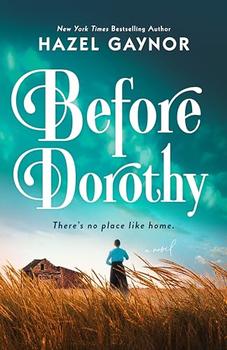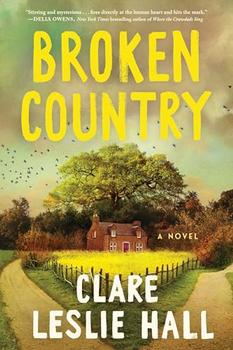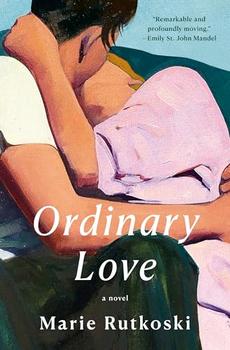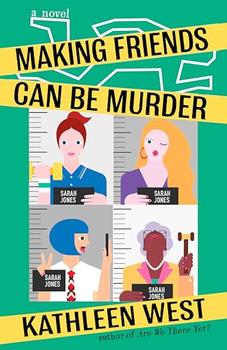 Linda's Postal Book Group has been discussing books for six years—through the mail! This group and others like it use journals to record and pass thoughts between members who sometimes live hundreds of miles apart. Elisabeth Cook interviews Linda:
Linda's Postal Book Group has been discussing books for six years—through the mail! This group and others like it use journals to record and pass thoughts between members who sometimes live hundreds of miles apart. Elisabeth Cook interviews Linda:
Hi, Linda! So, I'm not sure exactly how a postal book group works, but I'm very interested to find out. Can you explain the process?
There are six people in our postal book group. My group is all from the U.S., but I know of others who have people from other countries included. In our group, each person picks a book of no more than 300 pages, roughly—320 pages is okay, 400 not so much—and makes notes in a journal about why they picked that particular book and then adds comments and opinions of the book. The book and the journal are mailed to the next person on the list. That next person reads the book and notes their comments and opinions in the journal and sends it to the third person. The book stays with each person for two months, so by the end of a year each of us have read six books and each person has their book back. Then we start a new round and the original journal goes around again. This gives everyone in the group the opportunity to see what others wrote about the previous book.
That seems like a really clever format for a book group! How and when did you get started?
We are on our sixth year. Several of us went to an event, Booktopia, in 2014, where we heard about postal book groups. We were all active on a Goodreads thread, so we advertised on our thread to fill any holes in our group of six.
Does that mean the current club isn't the original six members you started with?
Five of my group were in the original group. When someone drops out, we reach out either through our friends or the Goodreads thread to keep the books a’comin’.
I'd love to hear more about Booktopia. How did you end up going there?
Once upon a time, there was a podcast called Books on the Nightstand. It was done by Ann Kunitz Kingman and Michael Kindness. They are both sales reps for Random House, but did this podcast completely on their own because of their love for reading. In addition to the podcast, they had a thread on Goodreads. Listeners flocked there to leave comments about the podcast, books, author events, really anything that happened in the book world. Many of us devotées soon realized we had friends online and would like to meet in person. In June of 2010, Ann and Michael announced we'd have a meet-up weekend in Manchester, Vermont in April of 2011. They arranged for authors and others in the publishing world to attend, and for discounts at B&Bs and at the marvelous independent Northshire Books.
Sounds like a great deal for book lovers! So that was Booktopia?
That first weekend was dubbed "Booktopia" by one of the attendees. Over the next three years, there were three Booktopias in different parts of the country. In 2015, there were two events where Ann and Michael announced they were not planning any additional Booktopias. Since then, Northshire Books has continued the tradition the first weekend in May. I made many, many friends through this group. It was in 2014 in Boulder, Colorado that there was a presentation about postal book groups.
How do you choose the books you read?
Each of us would have to answer this. I like to pick books that are not in the mainstream at the moment—something different. Last year I sent a Jeeves book by P.G. Wodehouse. The year before I sent what I felt was an overlooked gem, I’ll Be Your Blue Sky by Marisa de los Santos. Once someone sent The Girls by Emma Cline, which was a hot book that year. Last year someone mailed out My Sister, the Serial Killer by Oyinkan Braithwaite. We’ve circulated fiction and non-fiction, mysteries, Southern writers, ethnic writers, young writers—a very diverse group of books and authors.
So there are always multiple books and journals going at once?
Yes. Six books circulating with six journals.
When you write in the journals, do you respond directly to previous entries?
I do not. But during this latest round the person who sends to me teased that I shouldn’t read so much since it makes it difficult for her to pick a book that I have not already read.
You mean she left you that comment in the journal?
Yes, she left that comment, but I chose not to acknowledge it in the journal. I figured an e-mail or in-person comment would be a good tease back at her—she's still working, I'm retired.
Has anyone ever picked a book you’d already read?
There were two occasions. One time I didn’t reread, but the second time I did because I enjoyed the book, The Art of Hearing Heartbeats by Jan-Philipp Sendker, and it had been several years since I’d read it. The other book, News of the World by Paulette Giles, I had read just a month or so before it arrived in my mailbox.
What happens to the journals when you’re done with them?
So far, we are not done with them. My guess is each original sender will keep theirs. I know I will keep mine.
I imagine there are some challenges to keeping up this whole process. Have you found that to be true?
The first challenge has been timeliness. Personally, I’ll get a book at the beginning of January, knowing it doesn’t have to be mailed out until the end of February and think, I’ll get to it later. Then I might not allow enough time to get it read by the mail-it-on date. I made a pledge to myself and my receiver to do better and have mostly been much better. The important thing is to keep communication open. I let the next person know if the book will be a little late. The person who sends to me does the same. Another group completely fell apart when one person was constantly late and incommunicado. My cousin was in that group and has said that not even being offered someone’s first and second born would she take part in another group.
Wow! Has your group had any major issues like that?
My group hit a glitch the second year when we didn’t communicate. We started the second round without asking if all members wanted to continue. It wasn’t until someone complained about not getting two or three books that we found out that one person had dropped out and moved. Possibly because the books are sent media mail, they were not forwarded. We did get it sorted out and books retrieved and now we make sure to ask everyone if they want to continue.
What are some of the books that your group has enjoyed over the years, besides the ones you already mentioned?
Grocery: The Buying and Selling of Food in America by Michael Ruhlman seemed to be a big hit. Such a big hit we planned to have a physical book club meeting at the main grocery portrayed in the book—two of us are in Ohio, one in Kentucky, one in Pennsylvania and one in New York. Unfortunately, that didn’t work out. Finding Nouf by Zoë Ferraris was a mystery that many of us liked because we learned a lot about a completely different culture.
For you personally, what are some of the special delights of a postal book club that you might not experience with an in-person club?
I love the surprise of finding a package I know is a book in my mailbox every two months and not knowing exactly what it is. Quite often I’ve never heard of the book. It seems my in-person group is always reading something I’ve already read—I read 158 books in 2019. Also, possibly since we are from different geographic areas and different ages, the thoughts on the book might be a little broader. The youngest person in our group is probably in her 30s and has a 2-year old. I’m at the opposite end. I have a 30-year-old, and am 69.
When you receive a package, do you ever look at what’s in the journal before reading the book?
I do not know about others in the group, but I do not read the journal entry until I have read the book.
Now, you mentioned that you're aware of some other postal book clubs, like the one your cousin was in?
Yes, there are quite a few that developed from the original meeting and are still developing through Goodreads. The original group that presented us with the idea has one member who lives in Switzerland. I’m told that somehow they change the order of who sends to Kat so one person isn’t always paying for the postage to a foreign country.
So if someone reading this is interested in putting together their own postal book club, do you have any tips?
One tip is to not pull the pages out of a journal when it gets back to you. Yes, it makes the journal lighter for mailing, but not all the members have read those entries. It’s also nice to reminisce when a journal returns.
Anything else?
Communication is key. Which includes handwriting being legible.
It sounds like your group has been great at choosing interesting books to circulate that others haven’t read—any specific thoughts on how to do that?
Goodreads has been helpful to determine what others have read. The idea has been to broaden our horizons. Read something different from your usual fare. You might be surprised what you like.



The Whyte Python World Tour
by Travis Kennedy
Rikki Thunder, drummer for '80s metal band Whyte Python, is on the verge of fame, love—and a spy mission he didn’t expect.

Ordinary Love
by Marie Rutkoski
A riveting story of class, ambition, and bisexuality—one woman risks everything for a second chance at first love.

Making Friends Can Be Murder
by Kathleen West
Thirty-year-old Sarah Jones is drawn into a neighborhood murder mystery after befriending a deceptive con artist.
The dirtiest book of all is the expurgated book
Click Here to find out who said this, as well as discovering other famous literary quotes!
Your guide toexceptional books
BookBrowse seeks out and recommends the best in contemporary fiction and nonfiction—books that not only engage and entertain but also deepen our understanding of ourselves and the world around us.